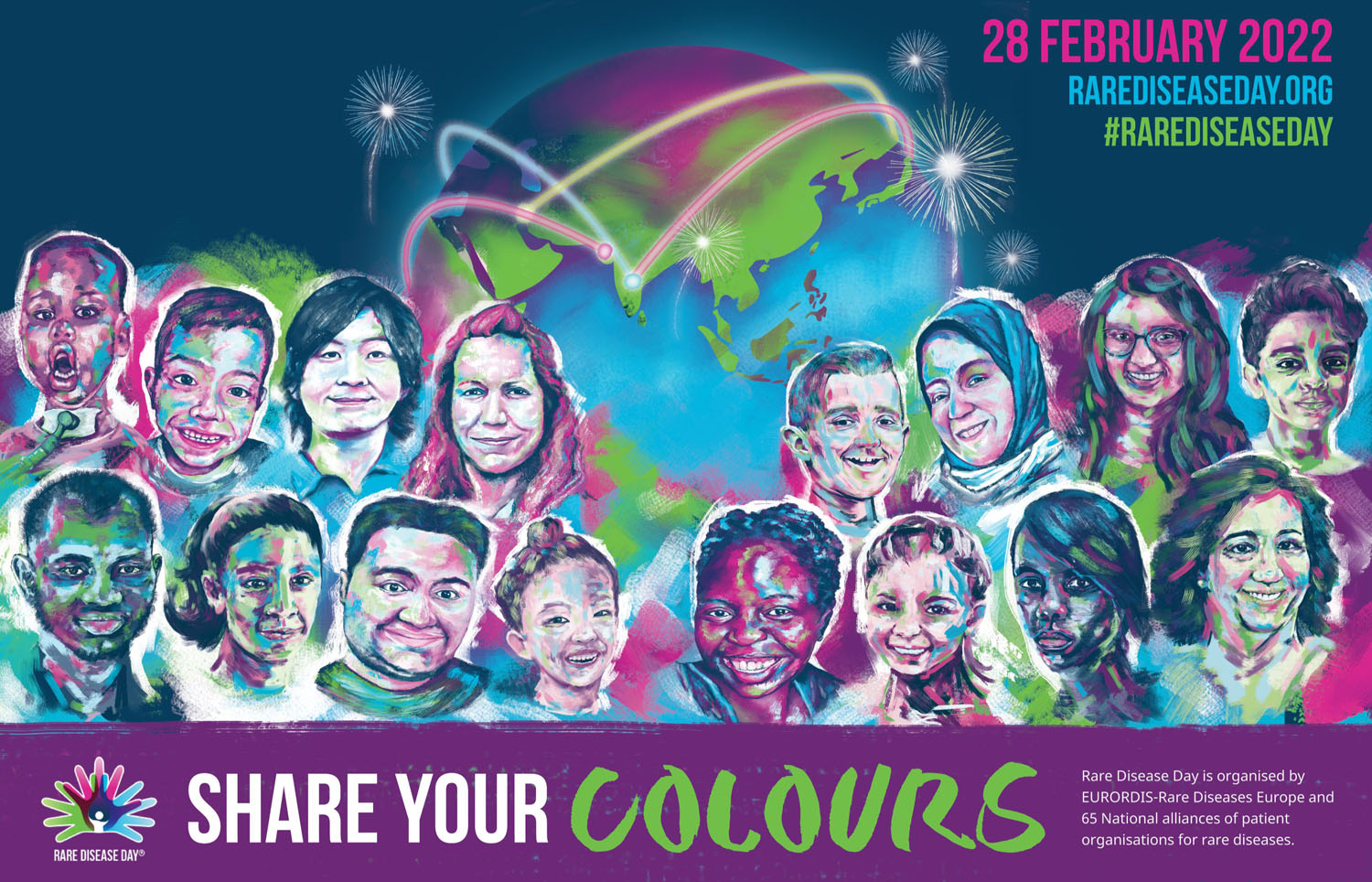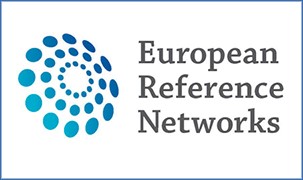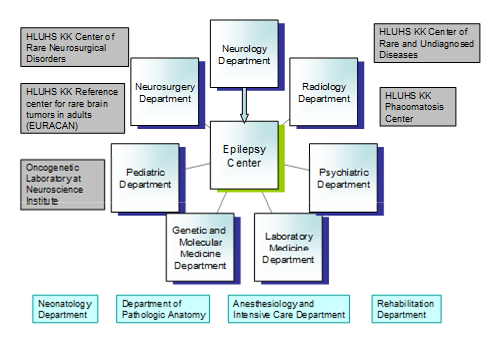The Coordinating Center for Rare and Undiagnosed Diseases (CCRUD) at the Hospital of Lithuanian University of Health Sciences Kauno klinikos (Hospital) has been established in 2012 when the Hospital was nominated as one of the two tertiary centers in Lithuania responsible for the implementation of the Lithuanian National Plan on the Activities Related to Rare Diseases, developed according to the requirements set by European Commission (COUNCIL RECOMMENDATION of 8 June 2009 on an action in the field of rare diseases). The Hospital has been registered as a partner of ORPHANET.
CCRUD takes part in organizing and coordinating all activities in the field of rare diseases at the Hospital level in order to ensure qualified multidisciplinary healthcare services for patients with suspected or diagnosed rare disorders. The staff of the CCRUD provides consultations for medical professionals and patients on the organizational issues of healthcare for rare disease patients (contacts are provided on the Hospital website). CCRUD functions in close collaboration with the Lithuanian University of Health Sciences also represents the Hospital at the national and international levels.
All clinical departments at the Hospital are providing services for children or adults with rare disorders as this is a tertiary center where most complicated or undiagnosed cases are concentrated. In addition, 25 functional centers for groups of specific rare diseases have been established in accordance with the special interests and experiences of the dedicated Hospital staff (see below). This allows a more structured approach to certain groups of rare diseases in providing comprehensive multidisciplinary care, scientific research, education of professionals, patients, and community, collaboration at the national and international level, etc.
Five rare disease centers take care of pediatric rare diseases, eight centers deal with adult patients, and the rest eleven cover both pediatric and adult patient populations. Close collaboration between pediatric and adult specialists allows smooth transition of children with rare disorders from childhood to adult healthcare.
Since 2017, the Hospital of Lithuanian University of Health Sciences Kauno klinikos has received the European Reference Network membership the following different medical fields: EURACAN (European Network for Rare Adult Solid Cancer), Endo-ERN (Rare Endocrine Conditions), ERN-EYE (Rare Eye Diseases), ERN-SKIN (Rare Skin Diseases, ERN RARE LIVER (Rare Liver Diseases), ERN RITA (Primary Immunodeficiency, Autoinflammatory and Autoimmune Diseases), ERN LUNG (Rare Respiratory Diseases), ERN BOND (Bone Rare Diseases), ERN GUARD HEART (Rare and Low Prevalence Complex Diseases of the Heart), ERN ERNICA (rare Inherited and Congenital (digestive and gastrointestinal) Anomalies), ERN EpiCARE (Rare and Complex Epilepsies), ERN EURO-NMD (Rare neuromuscular diseases), ERN ReCONNET (Rare and Complex Connective Tissue and Musculoskeletal Diseases).
The Hospital of Lithuanian University of Health Sciences Kauno klinikos is represented at the national level by its specialists in different rare-disease-related regular commissions (Coordination Commission related to the implementation of the National plan on Activities Related to Rare Diseases, Commission on Reimbursement of Treatment for Very Rare Diseases) and working groups (e.g., legislation on treatment reimbursement for certain rare diseases, rehabilitation, handicap status, etc.)
Collaboration with different patient organizations is taking place, by organizing joint activities (conferences, disease-specific days, publications). In collaboration with a non-governmental Association of children with rare disorders, consultations for families of children with rare disorders have been implemented at the Hospital.
International Rare Disease Day is being celebrated every year by organizing a conference for medical professionals and patients, supported by the broad campaign on rare diseases via different media sources. The information on this event is always announced on the EURORDIS website, and the EURORDIS-provided video clip translated to Lithuanian is spread around.
Information on rare diseases for patients, families, and professionals is provided in the Patient Portal or on the websites of specific Hospital-based rare disease centers (in Lithuanian).
The expanding diagnostic possibilities of rare genetic, metabolic and autoimmune disorders at the Hospital within the recent years, also the expanding possibilities of international collaboration predispose further development of healthcare provision for patients with rare diseases and of scientific research. We are open to any professional cooperation in this field of priority.
Center of Rare and Undiagnosed Diseases Kauno klinikos
Rare Disease Day 2022





.jpg)
.jpg)
